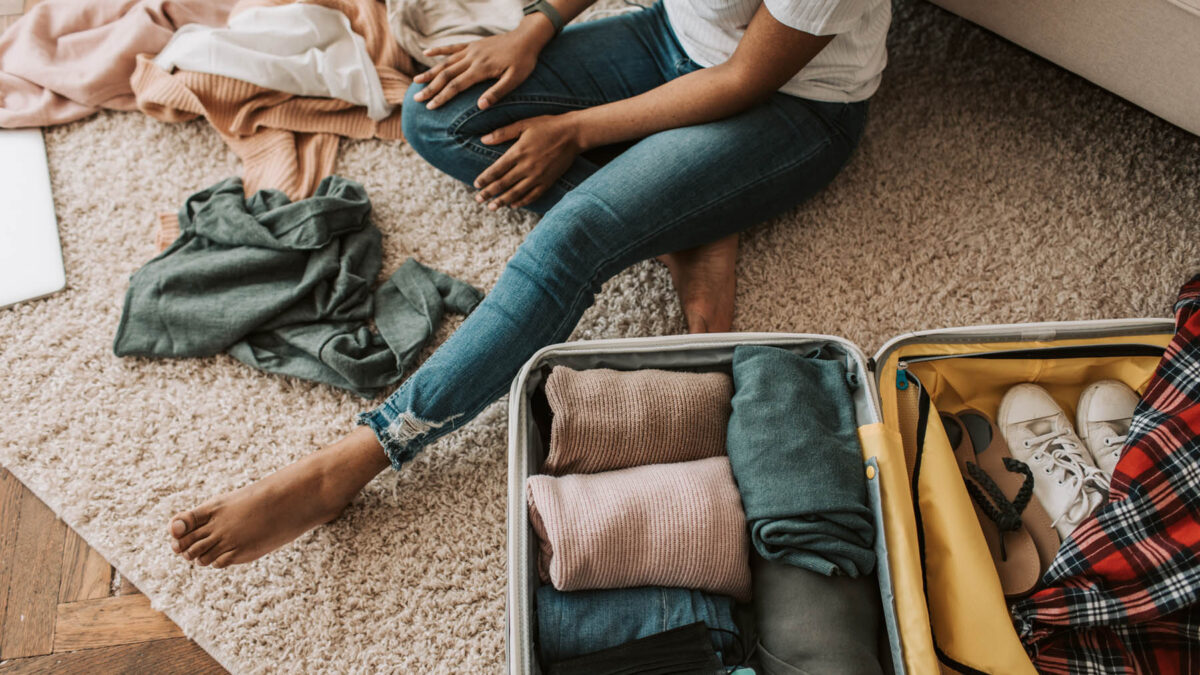Hello, fellow queer person! So you’re going to a wedding in your hometown. Chances are, if you’re reading this article, you have a lot of feelings about that. This may be the first event you’re attending with your childhood classmates since coming out. Your relationship with your family may be strained. You might simply feel queasy at the idea of revisiting old memories. No matter what your experience has been, coming back as an evolved version of yourself, more sure of your identity and confident in your own skin, can be daunting.
Unpacking the emotional baggage
The idea of “hometown” evokes something different for everyone, but for a lot of queer people, it comes with the emotional baggage of small-town American conservatism. Of course, not every hometown is Friday Night Lights or Stars Hollow personified–I grew up in a small, relatively liberal town in Pennsylvania, with annual Pride festivals and a bustling LGBTQ+ community. My personal experience as a queer person was shaped by that openness, and I have still found hometown weddings to be a strange experience, replete with homophobic dog-whistling from ministers and the awkward experience of coming out to former classmates while waiting for an espresso martini at the bar.
For a lot of people, though, returning home can mean culture shock, no matter the size of the city or town you’re from. Particularly in the case of going to your hometown for a cishet or straight wedding, there are socio-political forces at play that are simply different than what we, as queer adults forging our own chosen families, may be used to. Returning to your hometown at all, especially if you’ve been living elsewhere and active in a queer community that your childhood home lacks, is a loaded experience. It can easily become a minefield of inappropriate comments, stares, awkward silences and paralysis when faced with what bathroom to enter.
REMINDER: Your well-being and safety come first.
If you’re going to a hometown wedding, chances are that you feel comfortable enough to return as yourself, but that may not be the case. No amount of familial obligation or peer pressure should make you feel unsafe. Find LGBTQ+ resources here.
If, for whatever reason, you have to hide your identity or mask your gender presentation for a weekend, that’s your call, but be sure to have a plan in place to get some emotional aftercare once the event is over. There are infinite possibilities for dynamics that could limit your ability to exist freely as yourself, and no one can presume to understand your experience. However, let this serve as a gentle reminder that your identity is valid, and you deserve to feel completely safe and seen for who you truly are, no matter what. Lean on the community and resources you have to protect your heart in whatever way you need to.
If you are out and able to freely express your identity, you may still want to have a plan for dealing with any emotional fallout from this event. Tensions can run high, and if you mix in an open bar, things can get dicey. You likely have an idea of what to expect, but don’t hesitate to create an action plan should things go sideways.
The physical baggage: what to bring
Bring comfort items. Don’t underestimate the power of a favorite paperback novel or your Nintendo Switch! Along with your regular wedding guest essentials, pack items that will bring you joy, no matter how the event itself transpires.
Wear something that feels authentic to you. If at all possible, wear something gender-affirming and fabulous! If you’re going to be celebrating, you may as well do it in style. Depending on the dress code or whether you’re a part of the wedding party itself, you may not get a say onyour wedding wear. However, you do have control over what you wear lounging around the hotel or childhood bedroom, so be sure to pack clothes that are affirming and comfortable.
Plan to get out in nature at some point. Pack hiking clothes or a swimsuit so you can escape into the wild for a bit. If you have some downtime, consider spending it at a local park, swimming area or hiking trail. This is a great way to get grounded and enjoy your hometown, without any of the emotional baggage that might crop up.
Pro tips for getting through the awkwardness
Relaxation and stress-relief techniques will be your best friends. Stock up on guided meditations, deep breathing exercises, positive energy playlists and any other methods you have in your arsenal for banishing the bad stuff. Hopefully, you won’t have to pull out the breathwork, but trust me, if the officiant starts rambling about the sanctity of marriage “between a man and a woman,” you’ll be glad you have it in your back pocket.
With all of that in mind, prepare for the possibility of discomfort, and be ready to remove yourself from conversations that aren’t worth your participation. Here’s a trick that can be useful for getting through the drudgery: pretend you’re an anthropologist. It sounds a bit silly, but it can sincerely help. Consider this experience a research mission and become an observer for the weekend, present but not necessarily involved. You’ll be surprised at how much easier it becomes to stomach everything when you slightly distance yourself from the personal stakes. ![]()
Featured image by Vlada Karpovich
































